Cabbage Health Benefits: 11 Powerful Perks For Your Health
From boosting digestion to improving vision - cabbage offers many health perks.
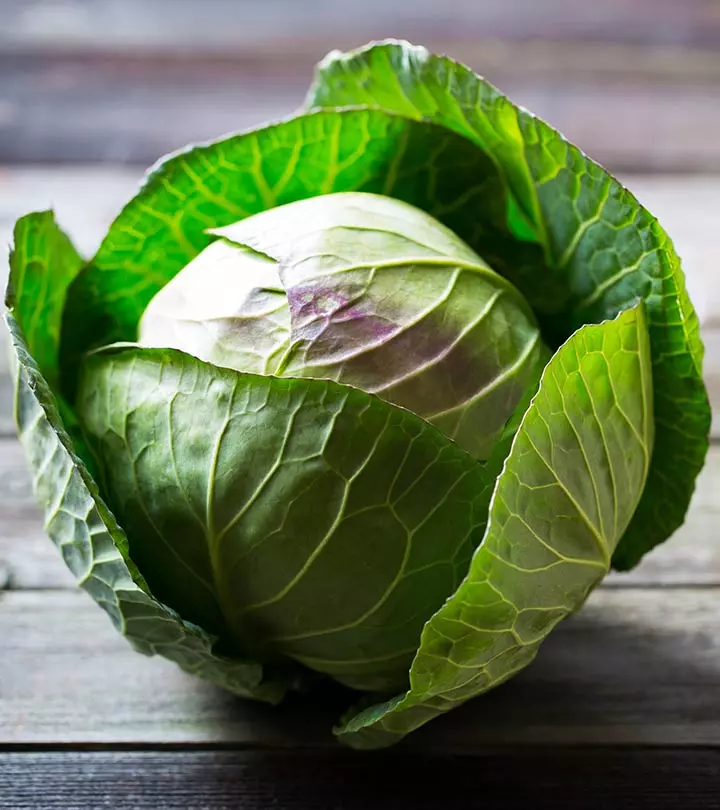
Image: iStock
Cabbage is a crunchy cruciferous vegetable with a rich nutritional profile. This versatile vegetable is often found in many food items like salads or sandwiches and is available in different colors. The benefits of cabbage are numerous, and they are the result of a wide variety of vitamins and minerals.
The intake of cabbage can help promote heart health, enhance the digestive system’s functioning, fight inflammation, and offer protection against cancer.
In this article, we have discussed the health benefits of cabbage, its nutrition profile, how to include it in your diet, and its possible side effects. Keep reading!
 Know Your Ingredient: Cabbage
Know Your Ingredient: CabbageWhat Is It?
A red, white, or green leafy vegetable that has a sweet or slightly peppery flavor.
What Are Its Benefits?
It promotes vision health, fights inflammation, aids in weight loss, strengthens hair, and improves skin health.
Who Can Consume It?
Anyone can consume it except people with a cabbage allergy and hypothyroidism and those on diabetes and blood thinning medications.
How Often?
You can consume 1 cup of cooked cabbage daily.
Caution
Avoid consuming cabbage if you are pregnant or lactating. Excess consumption may cause very low blood sugar and increase the risk of foodborne illnesses.
In This Article
How Is Cabbage Good For You?
Cabbage contains four major antioxidants. These are choline, beta-carotene, lutein, and quercetin.
Choline can improve memory and brain function and fight inflammation. It can also prevent neural tube defects in pregnant women (1).
Beta-carotene protects the human DNA from the ill effects of smoking (2).
Lutein can prevent age-related macular degeneration (3).
Quercetin fights harmful bacteria and combats disease (4).
Cabbage is also rich in vitamins C and K, and B vitamins that offer plenty of other benefits. Cabbage is available in different varieties, including:
- Cannonball cabbage (also called green cabbage, the most common variety)
- Bok choy
- Choy sum
- Napa cabbage
- Savoy cabbage
- Red cabbage
 Did You Know?
Did You Know?No matter the variety, the benefits are similar. Cruciferous vegetables, in general, are one of the most researched food groups. Cabbage happens to be among the popular ones. The following section will shed more light on how including cabbage in your regular diet may benefit you.
Key Takeaways
- Cabbage improves heart and gut health, the immune system, and the digestive system.
- It eliminates bad cholesterol, regulates old sugar levels, and reduces the risk of cancer.
- It also helps in reducing weight and fighting against cellular damage.
- Cabbage contains fibers, antioxidants, vitamins, and minerals.
What Are The Health Benefits of Cabbage?
Cabbage is rich in various antioxidants, including anthocyanins and sulforaphane.
These help fight inflammation and the associated ailments like heart disease and cancer. Fermented forms of cabbage may also boost your digestive health.
1. May Promote Heart Health

Red cabbage is rich in anthocyanins (5). These compounds are responsible for its characteristic red color. Studies link anthocyanins to a reduced risk of heart disease, though more long-term research is warranted (6).
A high intake of anthocyanins may also reduce the risk of myocardial infarction in young and middle-aged women. Further trials should give us more information on this aspect (7). These anthocyanins may also lower arterial stiffness, potentially reducing blood pressure (8).
The benefits of sauerkraut are well known. It is used in fermented cabbage preparation and it also promotes heart health (9). It is believed that sauerkraut neutralizes the gut flora, whose chemical by-products could harden the arteries. However, more research is needed to establish this connection.
Red cabbage also protects the heart by reducing the levels of bad cholesterol in the body (10).
2. May Enhance Digestive Health
Kimchi, another fermented food prepared from cabbage, can promote digestive health
. It is rich in probiotics and promotes digestion in ways similar to yogurt and other dairy products. Kimchi prevents constipation and also promotes colorectal health (11).
Cabbage is also rich in both insoluble and soluble fibers. The former adds bulk to stools and promotes regularity (12). The latter promotes gut-friendly bacteria (13).
 Trivia
Trivia3. May Fight Inflammation

Though inflammation by itself is not bad, chronic inflammation is. Cruciferous veggies, like cabbage, fight chronic inflammation (14).
In a study, women who had the highest intake of cruciferous vegetables displayed the lowest levels of inflammation. The study partly links the intake of such vegetables to reduced inflammation (15). This can be attributed to an antioxidant called sulforaphane present in cruciferous vegetables (16). Sulforaphane may also slow down cartilage damage in joints (17).
In another study, cabbage leaf wraps helped relieve inflammation of the knee in patients with osteoarthritis. They could be recommended for those with knee osteoarthritisi A condition in which the cartilage cushioning the end of the bone wears down over time and causes joint pain. , though more research is warranted (18).
Cabbage phytochemicals can also help fight health problems related to inflammation, including cancer and coronary artery disease (clogged Arteries) (19).
4. May Offer Protection From Cancer
Research is ongoing on the anticancer effects of sulforaphane. At the molecular level, this antioxidant has shown promising results (20).
Cabbage also contains another set of compounds called isothiocyanates. These may disarm carcinogens by getting them out of their toxic states and flushing them out of the body (21).
Cabbage contains another compound called brassinin, which also exhibits chemopreventive activity (22).
In rat and mouse studies, compounds in cabbage (cruciferous vegetables, in general) could inhibit the development of cancers of the bladder, breast, colon, liver, stomach, and lung (23), (24).
5. May Aid Diabetes Treatment

The benefits of red cabbage are widely recognized. It has antihyperglycemici A class of drugs commonly used in the treatment of diabetes to lower blood glucose levels in the blood. properties, which can cut the risk of diabetic nephropathyi Generally a complication of diabetes, it is the deterioration of the kidney function. It can even cause kidney failure. (25). Red cabbage extract also shows promise in alleviating diabetes and its vascular complications (26).
In a study, oral administration of cabbage extracts lowered blood sugar levels in fasting rabbits and relieved diabetic symptoms in depancreatized dogs (27).
The anthocyaninsi Colored water-soluble pigments that belong to a class of phenolic groups. They are rich in antioxidant properties. in cabbage could also have a role in treating (and even preventing) diabetes (28).
6. May Promote Vision Health
The lutein in cabbage contributes to vision health. Lutein (along with another antioxidant called zeaxanthin) protects the retina and the lens against the ultraviolet light. Cabbage also contains trace amounts of zeaxanthin (29).
Cabbage also contains vitamin C, another nutrient that aids vision. It may regenerate vitamin E inside the eye, which is an antioxidant important for vision health (30).
7. May Strengthen Immunity
The vitamin C in cabbage could strengthen immunity, though more studies are needed to further validate this statement (31). The antioxidant stimulates the white blood cells that help form the first line of defense. It also promotes the maturation of T-cells, which are an important component of the body’s immune system (32).
8. May Help With Weight Loss

Fruits and vegetables containing fiber (including cabbage) can help with weight loss (33). Some individuals also believe in a particular weight loss diet made of cabbages, called the cabbage soup diet.
This diet involves the intake of large amounts of cabbage soup for seven days. You may also consume certain other fruits and veggies, brown rice, chicken, and beef.
Though proponents say it is a good way to lose a few pounds quickly, you shouldn’t be staying on it for more than a week because it lacks in complex carbohydrates, protein, and other vitamins and minerals (34).
9. May Lower Blood Pressure
Cabbage is a good source of potassium, a vital mineral, and electrolyte important for several bodily functions. Potassium helps excrete excess sodium through urine (35). It may also help widen the blood vessels, which may lower blood pressure levels (36).
Potassium from fruits, vegetables, and low-fat dairy products may also help in lowering systolic blood pressure by an average of 5.5 mmHg and diastolic blood pressure by 2.88 mmHg. According to the FDA, following a healthy diet or the DASH eating pattern focusing on potassium-rich foods and low-sodium foods may help reduce the risk of high blood pressure and stroke (37).
9. May Improve Skin Health
Cabbage is rich in vitamin C. This nutrient boosts the production of collagen, a structural protein that helps with skin formation and wound healing (38).
As per mice studies, red cabbage may also have a role in skin cancer prevention (39).
11. Might Strengthen Hair

Cabbage contains quercetin. This antioxidant shows some promise in the treatment of alopecia areata (an autoimmune condition involving sudden hair loss). Mice studies show that subcutaneous injections of quercetin may induce hair growth in preexisting alopecic lesionsi An abnormal change in the tissue inside or outside the body which may have been caused by damage or trauma. (40).
We need more research in this regard, though. Of course, the studies have been promising. But we are yet to see how effective the quercetin in cabbage can be in boosting hair growth in humans.
The above benefits can undoubtedly be attributed to the powerful nutrients present in cabbage. Let’s take a look at its nutritional profile.
What Is The Nutrition Profile Of Cabbage?
| Calorie Information | ||
|---|---|---|
| Amounts Per Selected Serving | %DV | |
| Calories | 22.2(92.9 kJ) | 1% |
| From Carbohydrate | 18.7(78.3 kJ) | |
| From Fat | 0.7(2.9 kJ) | |
| From Protein | 2.8(11.7 kJ) | |
| From Alcohol | 0.0(0.0 kJ) | |
| Carbohydrates | ||
| Amounts Per Selected Serving | %DV | |
| Total Carbohydrate | 5.2 g | 2% |
| Dietary Fiber | 2.2 g | 9% |
| Starch | 0.0 g | |
| Sugars | 2.8 g | |
| Protein & Amino Acids | ||
| Amounts Per Selected Serving | %DV | |
| Protein | 1.1 g | 2% |
| Vitamins | ||
| Amounts Per Selected Serving | %DV | |
| Vitamin A | 87.2 IU | 2% |
| Vitamin C | 32.6 mg | 54% |
| Vitamin D | ~ | ~ |
| Vitamin E (Alpha Tocopherol) | 0.1 mg | 1% |
| Vitamin K | 67.6 mcg | 85% |
| Thiamin | 0.1 mg | 4% |
| Riboflavin | 0.0 mg | 2% |
| Niacin | 0.2 mg | 2% |
| Vitamin B6 | 0.1 mg | 6% |
| Folate | 38.3 mcg | 10% |
| Vitamin B12 | 0.0 mcg | 0% |
| Pantothenic Acid | 0.2 mg | 2% |
| Choline | 9.5 mg | |
| Betaine | 0.4 mg | |
| Minerals | ||
| Amounts Per Selected Serving | %DV | |
| Calcium | 35.6 mg | 4% |
| Iron | 0.4 mg | 2% |
| Magnesium | 10.7 mg | 3% |
| Phosphorus | 23.1 mg | 2% |
| Potassium | 151 mg | 4% |
| Sodium | 16.0 mg | 1% |
| Zinc | 0.2 mg | 1% |
| Copper | 0.0 mg | 1% |
| Manganese | 0.1 mg | 7% |
| Selenium | 0.3 mcg | 0% |
| Fluoride | 0.9 mcg | |
Values sourced from USDA, cabbage, raw
Including cabbage in your regular diet is one way of benefiting from these nutrients. In the following section, we will discuss how you can do that.
How To Include Cabbage In Your Diet
The first thing to do is pick the right cabbage. You need to choose one that is heavy for its size. Also, ensure the leaves are tight and firm. Loose leaves indicate the cabbage is older.
You can eat this veggie raw, boiled, steamed, roasted, stuffed, or even sautéed. Don’t overcook cabbage as doing so leads to the characteristic sulfur-like odor.
Following are the ways you can include cabbage in your diet:
- Add shredded cabbage to your evening vegetable salad.
- Add chopped cabbage to the soup you have for dinner.
- Drizzle roasted cabbage with powdered black pepper, olive oil, and minced garlic and have it as it is.
Wendy, a food blogger, explains how she became a fan of cabbage after trying the lemongrass and cabbage soup and shares the recipe on her blog. The familiar dishes she made with cabbage included sauteed with bacon, rosemary lamb, or coleslaw. She wrote, “Just recently I started making this wonderfully fragrant, creamy soup. It looks pretty and it tastes fresh and healthy. I adore it. So much so, in fact, that the cabbages in my kitchen don’t often make it through the weekend (i).”
Eating raw cabbage can offer the greatest amount of nutrients, followed by fermenting and cooking. Plan your cabbage meals accordingly. But before you do that, you should know the possible side effects of cabbage.
What Are The Side Effects Of Cabbage?
Consuming cabbage can have various advantages, but they also come with side effects. They can cause allergic reactions to other serious issues in the body. Let’s look at how the negative effects of cabbage on ladies and gents are caused.
- Possible Issues During Pregnancy And Breastfeeding
Avoid eating raw cabbage to cut the risk of food-borne illness (41). Ensure you cook cabbage properly before consumption.
- Allergies
If you are allergic to other veggies from the cabbage family (like broccoli or cauliflower) (42), stay away from cabbage.
- May Lower Blood Sugar Way Too Much
If you are already on diabetes medication, do check with your doctor before you start consuming cabbage (43). This is to ensure your blood pressure doesn’t go way too low.
- Hypothyroidism
Cabbage may interfere with the thyroid hormone. If you have hypothyroidism, cut back (or even avoid) cabbage. This is truer with raw cabbage. Consult your doctor too (44).
Anecdotal evidence suggests that cabbage may interfere with the absorption of thyroid medication. If you have a thyroid condition and take medication, it is best to discuss any potential interactions with your doctor before increasing your cabbage consumption.
Infographic: Digging Deeper Into Cabbage
Cabbage is a widely consumed cruciferous vegetable across the world, given its rich nutritional profile. However, some of its benefits are lesser-known to people, especially its protective action against radiation exposure. In this infographic, we delve deeper into the red cabbage benefits and other must-know facts. Take a look!
Some thing wrong with infographic shortcode. please verify shortcode syntax
Cabbages are a healthy superfood featured in many culinary dishes. Cabbage benefits can be attributed to its rich antioxidant profile. It contains powerful antioxidants such as quercetin, lutein, choline, and beta-carotene. This cruciferous veggie aids weight loss and boosts cardiovascular health. It may also be useful for promoting gut health, hair growth, and enhancing immunity. However, overuse may have unpleasant side effects. Cabbage may cause allergic reactions, lower blood sugar way too much, and interfere with the thyroid hormone. If you experience any adverse effects, limit its use and seek medical advice.
Frequently Asked Questions
Is cabbage an affordable vegetable?
Yes, cabbage is generally considered an affordable vegetable. Compared to many other fruits and vegetables, it is often priced at a good value for its nutritional content. This makes it a budget-friendly option for incorporating more vegetables into your diet.
How to store cabbage?
Wrap cabbage tightly in plastic wrap (if it is already cut) or in a sealable plastic bag (if it is whole). You can store the cabbage in the crisper draw in your refrigerator for up to 2 to 3 weeks.
Is cabbage keto?
Since cabbage is comparatively low in carbohydrates, it can be a part of your keto diet.
Is cooked cabbage is good for you?
Eating raw or lightly cooked cabbage is good for health. Cooking cabbage at high temperatures for long periods destroys the active enzymes in it.
Is cabbage healthier than lettuce?
In terms of proteins and vitamins, cabbage is healthier than lettuce. A regular serving of cabbage meets 60% of the RDA of vitamin C intake, while lettuce only meets about 4% of the RDA of the vitamin (45), (46), (47). Cabbage also contains vitamin B6, while lettuce does not. Hence, cabbage could be a healthier option than lettuce.
Is cabbage water healthy?
Yes, cabbage water is healthy. Vitamins E and C in the vegetable can stimulate the digestive and immune systems. Drinking cabbage water is linked to many benefits, including weight loss, improved gut health, decreased inflammation, balanced hormones, and body detoxification. However, none of them have been scientifically proven.
How long does it take cabbage juice to heal an ulcer?
On average, cabbage juice can heal ulcers after 7-10 days of treatment. In one study, 13 participants with stomach and upper digestive tract ulcers were given around one quart (946 ml) of fresh cabbage juice throughout the day (48).
What are the possible issues of eating cabbage during surgery?
Cabbage may affect blood sugar control during and after surgical procedures. Avoid eating it at least two weeks before a scheduled surgery.
Can you eat cabbage at night?
Cabbage is high in fiber content and may be difficult to digest for some people. Therefore, it is not recommended to eat it at night.
Is cabbage good for wrinkles?
Cabbage is loaded with antioxidants, which may have anti-aging benefits. Anecdotal evidence suggests that cabbage juice works as a remedy for under-eye wrinkles.
Does cabbage block iron absorption?
No, cabbage does not block iron absorption. On the contrary, it contains high quantities of vitamin C, which aids in iron absorption.
Illustration: Health Benefits Of Cabbage, Nutrition, And Side Effects
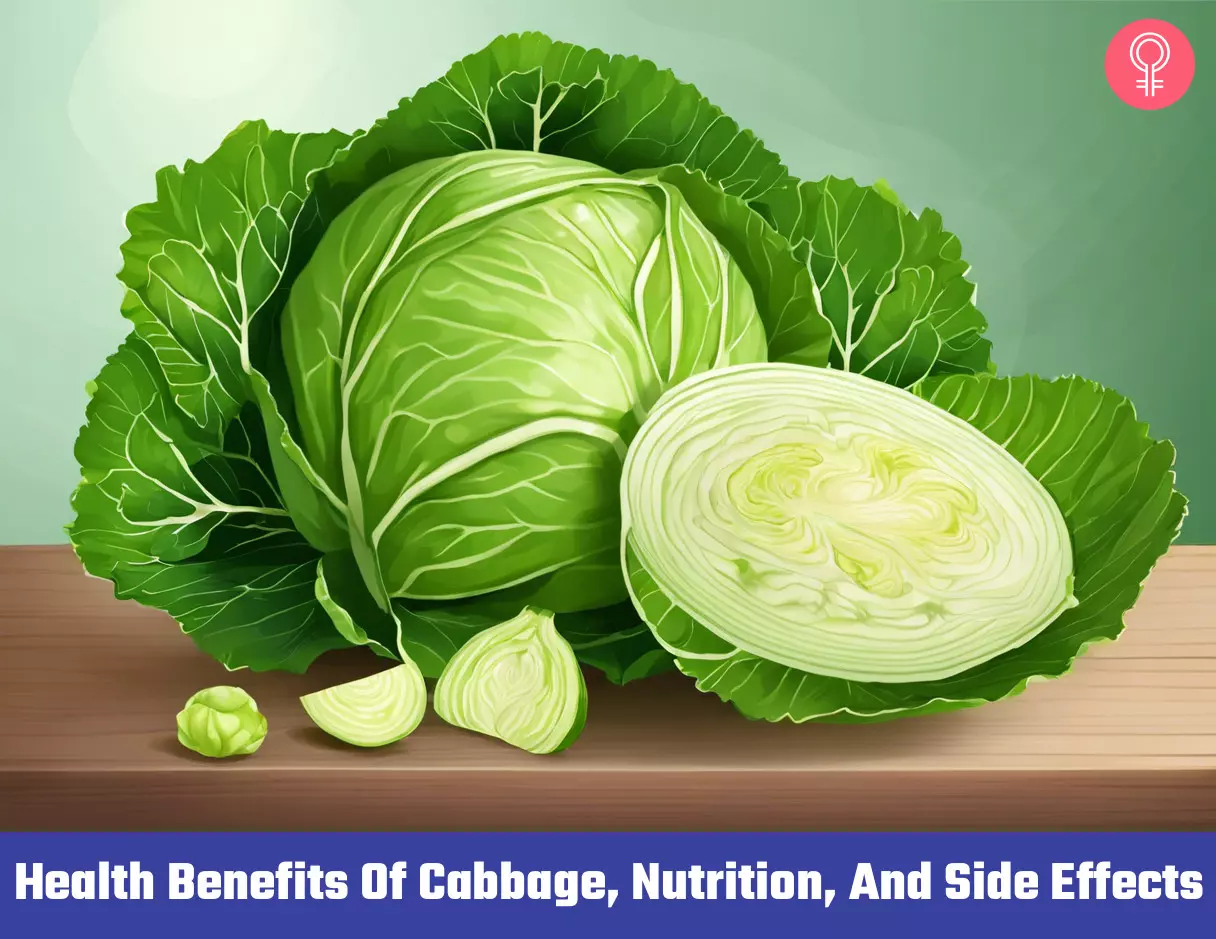
Image: Stable Diffusion/StyleCraze Design Team
Discover the amazing health benefits of cabbage and how to add it to your diet from a doctor in this informative video. Watch the video to learn how this vegetable can help improve your overall health and wellbeing.
Personal Experience: Source
StyleCraze's articles are interwoven with authentic personal narratives that provide depth and resonance to our content. Below are the sources of the personal accounts referenced in this article.
i. Lemongrass and Cabbage Souphttps://teach77.wordpress.com/2009/01/11/lemongrass-and-cabbage-soup//
References
Articles on StyleCraze are backed by verified information from peer-reviewed and academic research papers, reputed organizations, research institutions, and medical associations to ensure accuracy and relevance. Read our editorial policy to learn more.
- Choline: An Essential Nutrient for Public Health, Nutrition Reviews, US National Library of Medicine, National Institutes of Health.
https://www.ncbi.nlm.nih.gov/pmc/articles/PMC2782876/ - The effect of carrot juice, β-carotene supplementation on lymphocyte DNA damage, erythrocyte antioxidant enzymes and plasma lipid profiles in Korean smoker, Nutrition Research and Practice, US National Library of Medicine, National Institutes of Health.
https://www.ncbi.nlm.nih.gov/pmc/articles/PMC3259297/ - The Role of Lutein in Eye-Related Disease, Nutrients, US National Library of Medicine, National Institutes of Health.
https://www.ncbi.nlm.nih.gov/pmc/articles/PMC3708350/ - Characterisation of anti-Staphylococcus aureus activity of Quercetin, International Journal of Food Science and Technology.
https://www.researchgate.net/publication/229960996_Characterisation_of_anti-Staphylococcus_aureus_activity_of_Quercetin - Anthocyanin-rich red cabbage (Brassica oleracea L.) extract attenuates cardiac and hepatic oxidative stress in rats fed an atherogenic diet, Journal of the Science of Food and Agriculture, US National Library of Medicine, National Institutes of Health.
https://pubmed.ncbi.nlm.nih.gov/22228433/ - Anthocyanins in Cardiovascular Disease, Advances in Nutrition, US National Library of Medicine, National Institutes of Health.
https://www.ncbi.nlm.nih.gov/pmc/articles/PMC3042791/ - High anthocyanin intake is associated with a reduced risk of myocardial infarction in young and middle-aged women, Circulation, US National Library of Medicine, National Institutes of Health.
https://pubmed.ncbi.nlm.nih.gov/23319811/ - Higher anthocyanin intake is associated with lower arterial stiffness and central blood pressure in women, The American Journal of Clinical Nutrition, US National Library of Medicine, National Institutes of Health.
https://pubmed.ncbi.nlm.nih.gov/22914551/ - Yogurt and other fermented foods as sources of health-promoting bacteria, Nutrition Reviews, Oxford Academic Journals.
https://academic.oup.com/nutritionreviews/article/76/Supplement_1/4/5185609 - Red Cabbage Microgreens Lower Circulating Low-Density Lipoprotein (LDL), Liver Cholesterol, and Inflammatory Cytokines in Mice Fed a High-Fat Diet, Journal of Agricultural and Food Chemistry, US National Library of Medicine, National Institutes of Health.
https://pubmed.ncbi.nlm.nih.gov/27933986/ - Health benefits of kimchi (Korean fermented vegetables) as a probiotic food, Journal of Medicinal Food, US National Library of Medicine, National Institutes of Health.
https://pubmed.ncbi.nlm.nih.gov/24456350/ - Effect of dietary fiber on constipation: A meta analysis, World Journal of Gastroenterology, US National Library of Medicine, National Institutes of Health.
https://www.ncbi.nlm.nih.gov/pmc/articles/PMC3544045/ - Fiber and Prebiotics: Mechanisms and Health Benefits, Nutrients, US National Library of Medicine, National Institutes of Health.
https://www.ncbi.nlm.nih.gov/pmc/articles/PMC3705355/ - Cruciferous vegetables: prototypic anti-inflammatory food components, Clinical Phytoscience.
https://link.springer.com/article/10.1186/s40816-015-0011-2?utm_medium=affiliate&utm_source=commission_junction&utm_campaign=3_nsn6445_brand_PID8157183&utm_content=de_textlink - Cruciferous Vegetable Intake Is Inversely Correlated with Circulating Levels of Proinflammatory Markers in Women, Journal of the Academy of Nutrition and Dietetics.
https://www.jandonline.org/article/S2212-2672(13)01891-1/pdf - The anti-inflammatory effects of sulforaphane are not mediated by the Nrf2 pathway, European Respiratory Journal.
https://erj.ersjournals.com/content/44/Suppl_58/P3332 - Stable sulforaphane protects against gait anomalies and modifies bone microarchitecture in the spontaneous STR/Ort model of osteoarthritis, Bone, US National Library of Medicine, National Institutes of Health.
https://www.ncbi.nlm.nih.gov/pmc/articles/PMC5571892/#s0120title - Efficacy of Cabbage Leaf Wraps in the Treatment of Symptomatic Osteoarthritis of the Knee: A Randomized Controlled Trial, The Clinical Journal of Pain, US National Library of Medicine, National Institutes of Health.
https://pubmed.ncbi.nlm.nih.gov/26889617/ - Cabbage (Brassica oleracea L. var. capitata) phytochemicals with antioxidant and anti-inflammatory potential, Asian Pacific Journal of Cancer Prevention, US National Library of Medicine, National Institutes of Health.
https://pubmed.ncbi.nlm.nih.gov/24377584/ - Epigenetic Regulation by Sulforaphane: Opportunities for Breast and Prostate Cancer Chemoprevention, Current Pharmacology Reports.
https://link.springer.com/article/10.1007/s40495-014-0002-x?utm_medium=affiliate&utm_source=commission_junction&utm_campaign=3_nsn6445_brand_PID8157183&utm_content=de_textlink - Eat Cabbage to Fight Cancer, Environews.
https://www.ncbi.nlm.nih.gov/pmc/articles/PMC1567139/pdf/envhper00393-0017-color.pdf - Cancer chemopreventive activity of brassinin, a phytoalexin from cabbage, Carcinogenesis, US National Library of Medicine, National Institutes of Health.
https://pubmed.ncbi.nlm.nih.gov/7859373/ - Inhibition of carcinogenesis by isothiocyanates, Drug metabolism reviews, US National Library of Medicine, National Institutes of Health.
https://pubmed.ncbi.nlm.nih.gov/11139137/ - Cruciferous vegetables and cancer prevention, Nutrition and Cancer, US National Library of Medicine, National Institutes of Health.
https://pubmed.ncbi.nlm.nih.gov/12094621/ - Red Cabbage (Brassica oleracea) Ameliorates Diabetic Nephropathy in Rats, Evidence-based Complementary and Alternative Medicine, US National Library of Medicine, National Institutes of Health.
https://www.ncbi.nlm.nih.gov/pmc/articles/PMC2529380/ - Antidiabetic effects and erythrocyte stabilization by red cabbage extract in streptozotocin-treated rats, Food & Function, US National Library of Medicine, National Institutes of Health.
https://pubmed.ncbi.nlm.nih.gov/29517782/ - THE Influence Of Cabbage Extracts Upon The Blood Sugar Level, National Center for Biotechnology Information.
https://www.ncbi.nlm.nih.gov/pmc/articles/PMC1509938/pdf/bripharmchem00115-0122.pdf - The significance of anthocyanins in the prevention and treatment of type 2 diabetes, Advances in Clinical and Experimental Medicine, US National Library of Medicine, National Institutes of Health.
https://pubmed.ncbi.nlm.nih.gov/29521054/ - Dietary Consumption of Lutein and Zeaxanthin in Panama: A Cross-Sectional Study, Advances in Clinical and Experimental Medicine, US National Library of Medicine, National Institutes of Health.
https://www.ncbi.nlm.nih.gov/pmc/articles/PMC6163105/ - Nutrients for the aging eye, Clinical Interventions in Aging, US National Library of Medicine, National Institutes of Health.
https://www.ncbi.nlm.nih.gov/pmc/articles/PMC3693724/ - Emerging Evidence on Neutrophil Motility Supporting Its Usefulness to Define Vitamin C Intake Requirements, Nutrients, US National Library of Medicine, National Institutes of Health.
https://www.ncbi.nlm.nih.gov/pmc/articles/PMC5452233/ - Vitamin C promotes maturation of T-cells, Antioxidants & Redox Signaling, US National Library of Medicine, National Institutes of Health.
https://pubmed.ncbi.nlm.nih.gov/23249337/ - Changes in Intake of Fruits and Vegetables and Weight Change in United States Men and Women Followed for Up to 24 Years: Analysis from Three Prospective Cohort Studies, PloS, US National Library of Medicine, National Institutes of Health.
https://www.ncbi.nlm.nih.gov/pmc/articles/PMC4578962/ - Soup consumption is associated with a lower dietary energy density and a better diet quality in US adults, The British Journal of Nutrition, US National Library of Medicine, National Institutes of Health.
https://pubmed.ncbi.nlm.nih.gov/24382211/ - Cardiovascular benefits associated with higher dietary K+ vs. lower dietary Na+: evidence from population and mechanistic studies, American journal of physiology, Endocrinology, and Metabolism, US National Library of Medicine, National Institutes of Health.
https://www.ncbi.nlm.nih.gov/pmc/articles/PMC5406991/ - Role of potassium in regulating blood flow and blood pressure, American Journal of Physiology-Regulatory, Integrative and Comparative Physiology, American Physiological Society
https://journals.physiology.org/doi/full/10.1152/ajpregu.00491.2005 - Potassium, National Institutes of Health.
https://ods.od.nih.gov/factsheets/Potassium-HealthProfessional/ - Vitamin C, National Institutes of Health.
https://ods.od.nih.gov/factsheets/VitaminC-HealthProfessional/ - Plants used to treat skin diseases, Pharmacognosy Review, US National Library of Medicine, National Institutes of Health.
https://www.ncbi.nlm.nih.gov/pmc/articles/PMC3931201/ - Prevention and treatment of alopecia areata with quercetin in the C3H/HeJ mouse model, Cell Stress & Chaperones, US National Library of Medicine, National Institutes of Health.
https://www.ncbi.nlm.nih.gov/pmc/articles/PMC3273564/ - Outbreaks attributed to fresh leafy vegetables, United States, 1973–2012, Epidemiology & Infection, US National Library of Medicine, National Institutes of Health.
https://www.ncbi.nlm.nih.gov/pmc/articles/PMC4591532/ - Anaphylaxis to cabbage: detection of allergens, Annals of Allergy, US National Library of Medicine, National Institutes of Health.
https://pubmed.ncbi.nlm.nih.gov/3565859/ - The Influence of Cabbage Extracts Upon The Blood Sugar Level, British Journal of Pharmacology, US National Library of Medicine, National Institutes of Health.
https://www.ncbi.nlm.nih.gov/pmc/articles/PMC1509938/?page=1 - Various Possible Toxicants Involved in Thyroid Dysfunction: A Review, Journal of Clinical & Diagnostic Research, US National Library of Medicine, National Institutes of Health.
https://www.ncbi.nlm.nih.gov/pmc/articles/PMC4740614/ - Cabbage, raw, U.S. Department of Agriculture.
https://fdc.nal.usda.gov/fdc-app.html#/food-details/169975/nutrients - Lettuce, cos or romaine, raw, U.S. Department of Agriculture.
https://fdc.nal.usda.gov/fdc-app.html#/food-details/169247/nutrients - Vitamin C, National Institutes of Health.
https://ods.od.nih.gov/factsheets/VitaminC-HealthProfessional/ - RAPID HEALING OF PEPTIC ULCERS IN PATIENTS RECEIVING FRESH CABBAGE JUICE, Western Journal Of Medicine, US National Library of Medicine, National Institutes of Health.
https://www.ncbi.nlm.nih.gov/pmc/articles/PMC1643665/?page=4
Read full bio of Heather M. Duquette-Wolf
Read full bio of Sindhu Koganti
Read full bio of Ravi Teja Tadimalla
Read full bio of Aparna Mallampalli






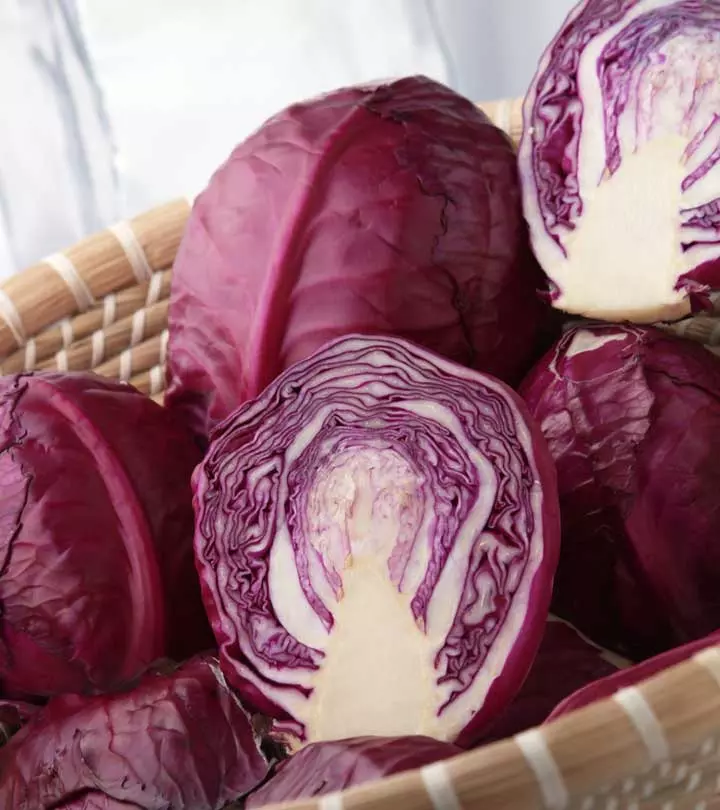

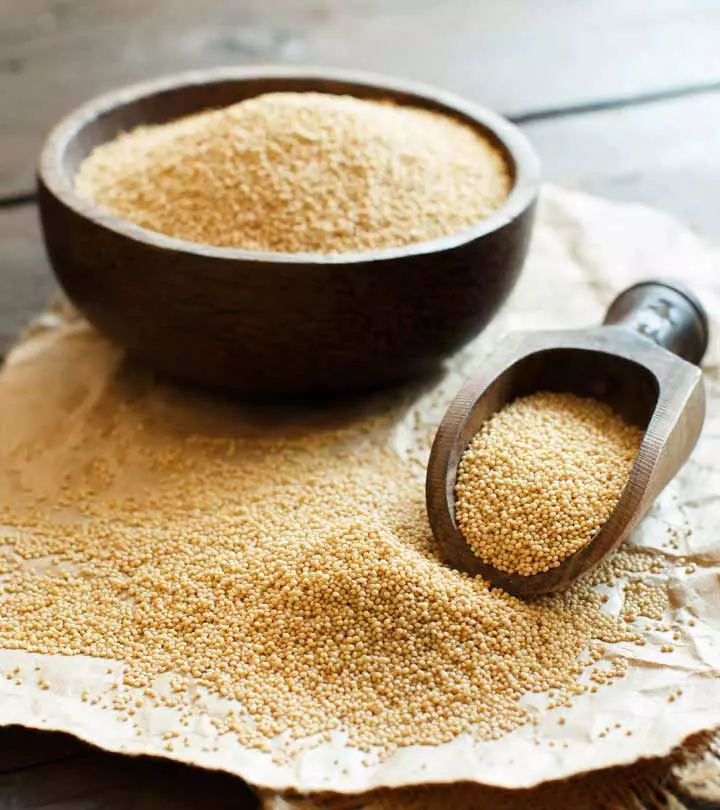
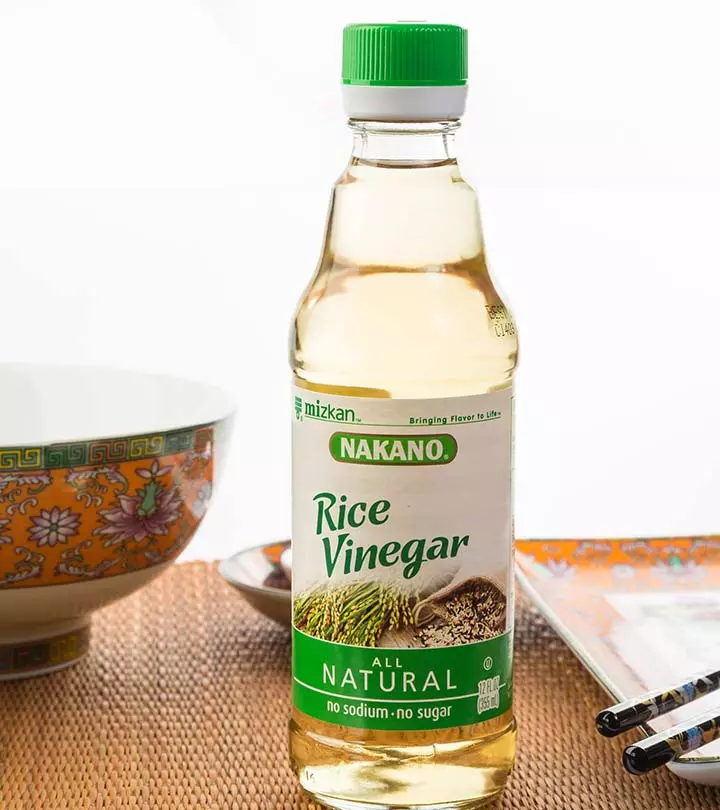
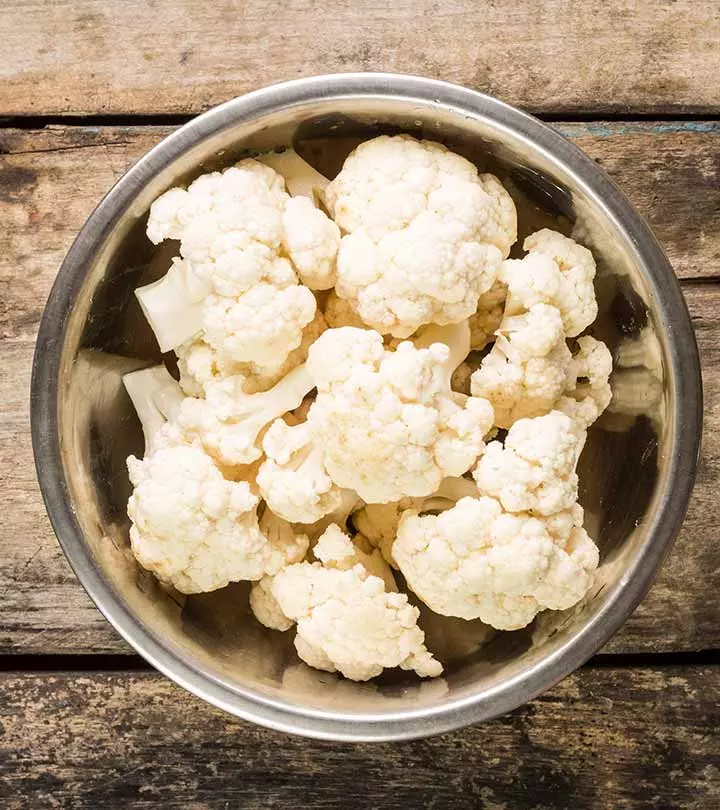
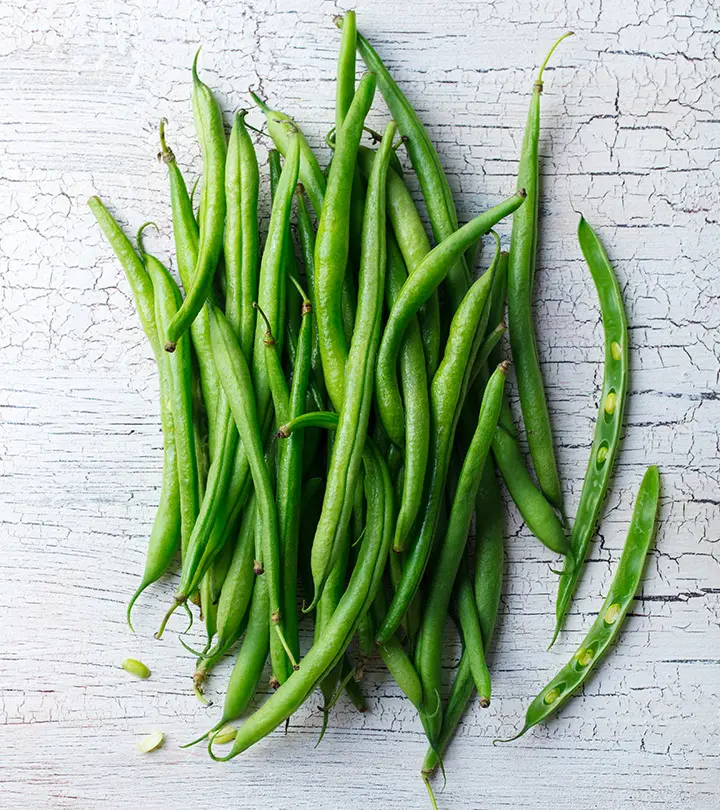
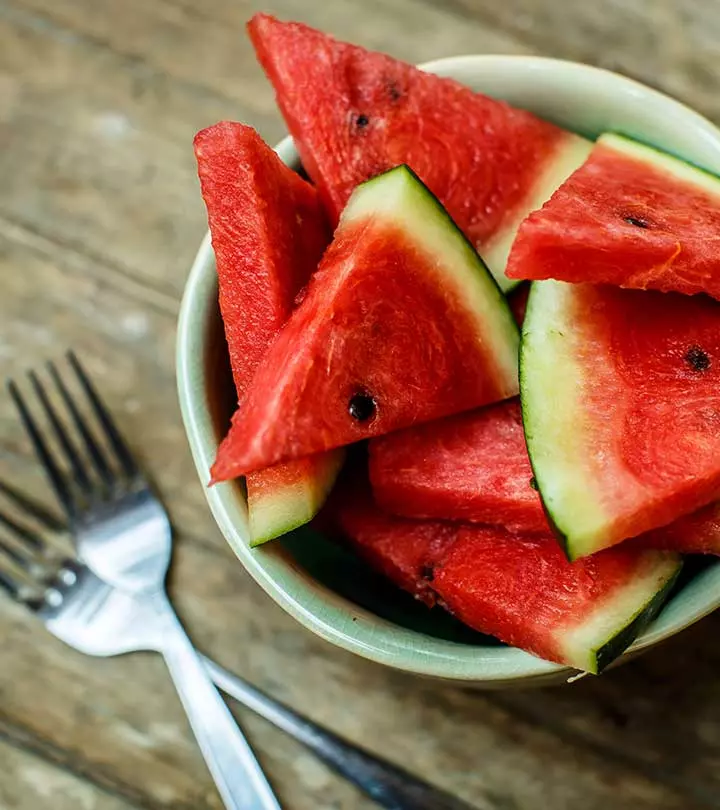
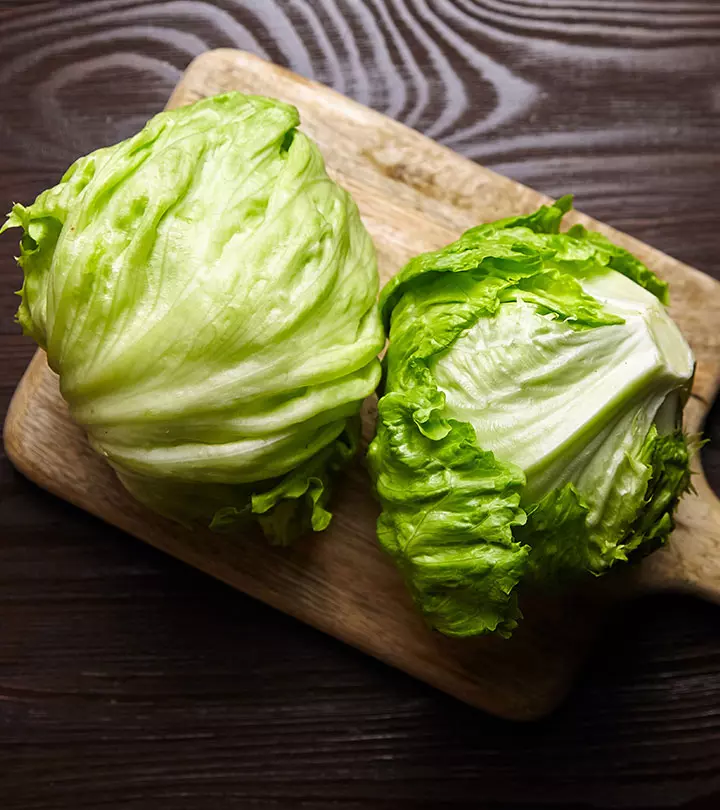
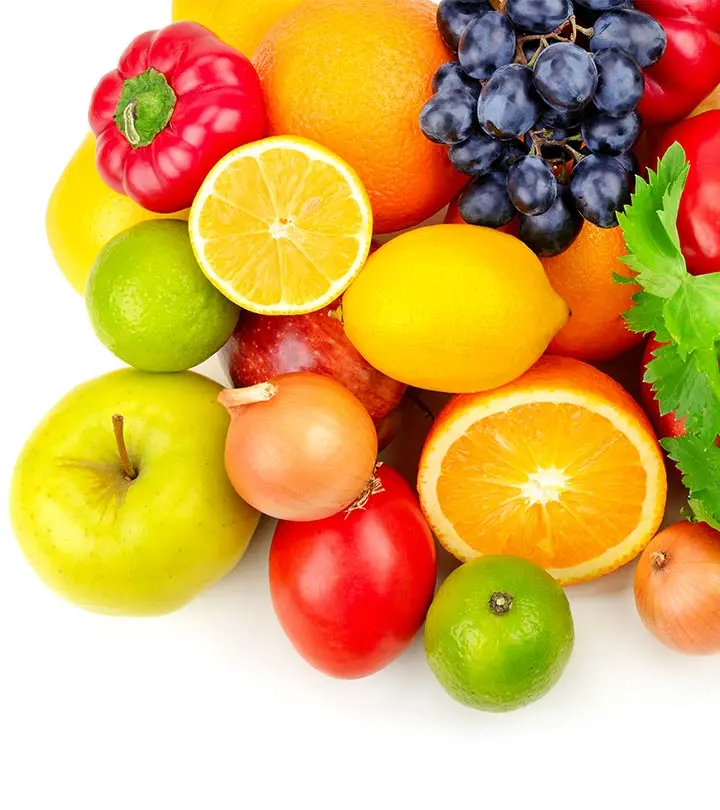
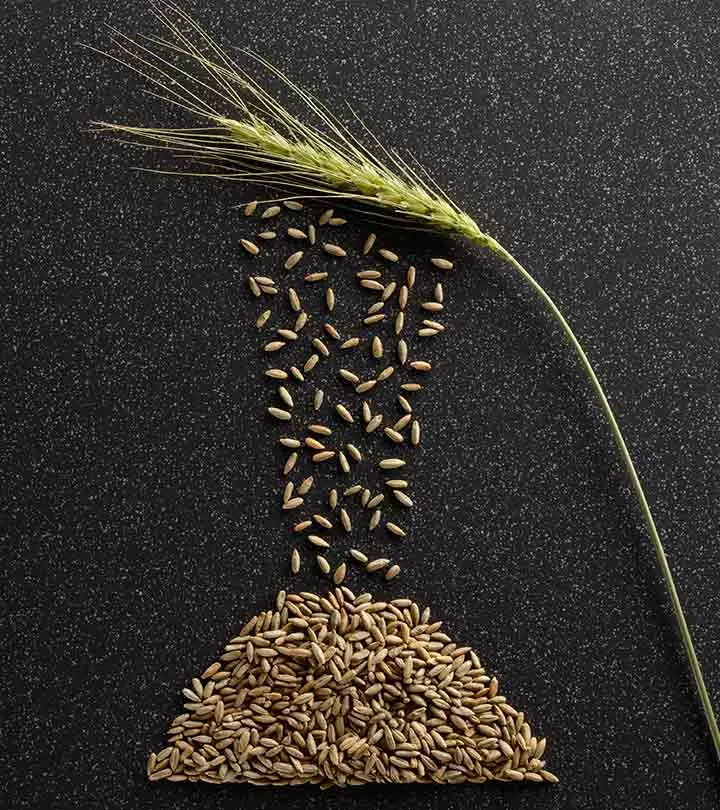

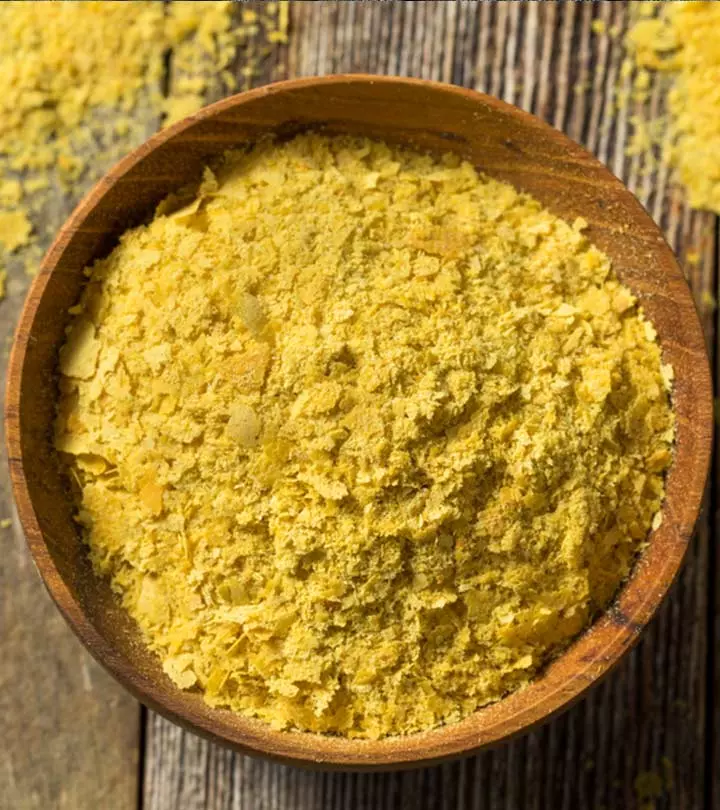

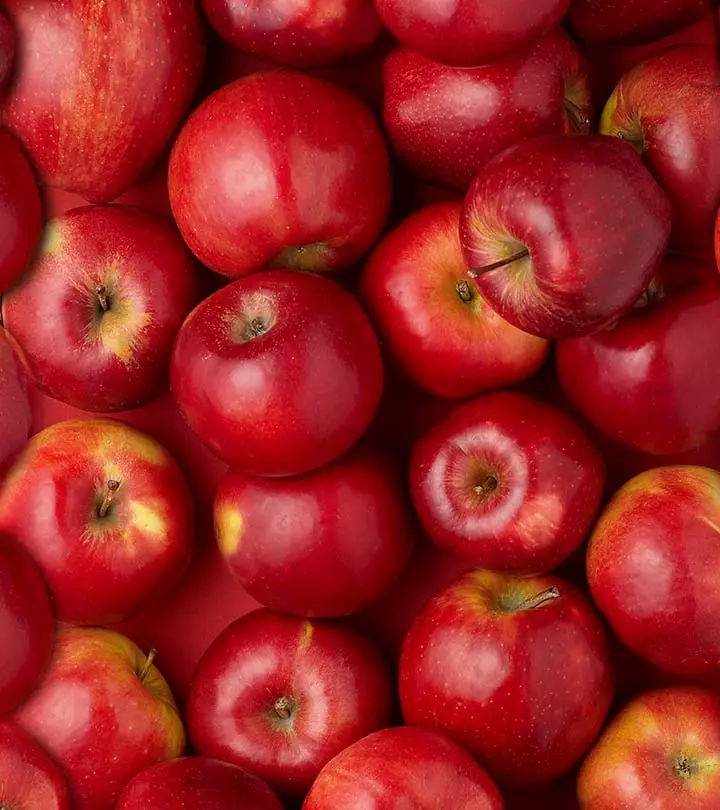

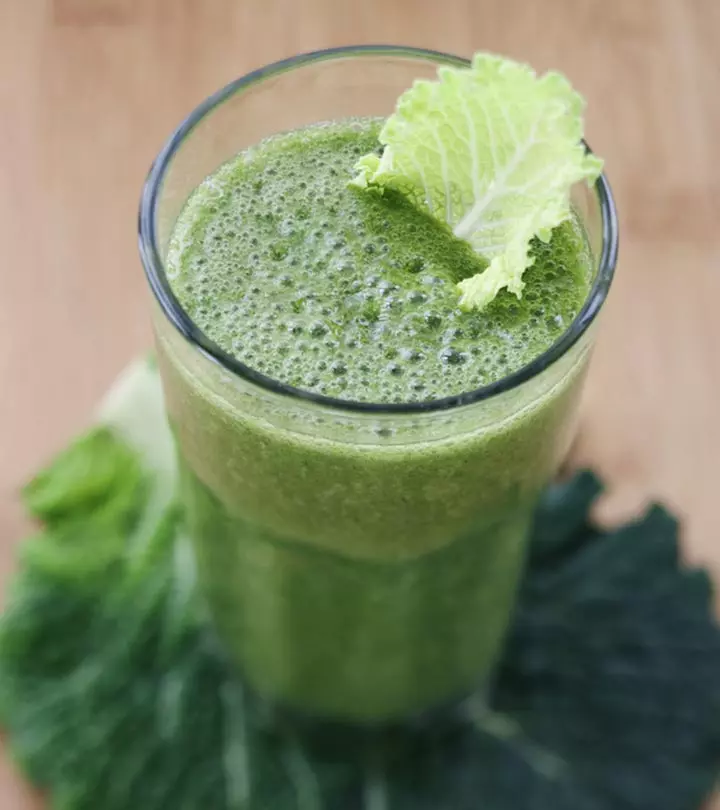





Community Experiences
Join the conversation and become a part of our empowering community! Share your stories, experiences, and insights to connect with other beauty, lifestyle, and health enthusiasts.